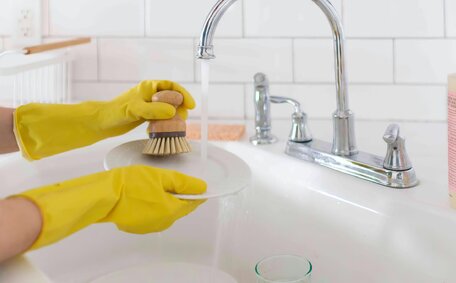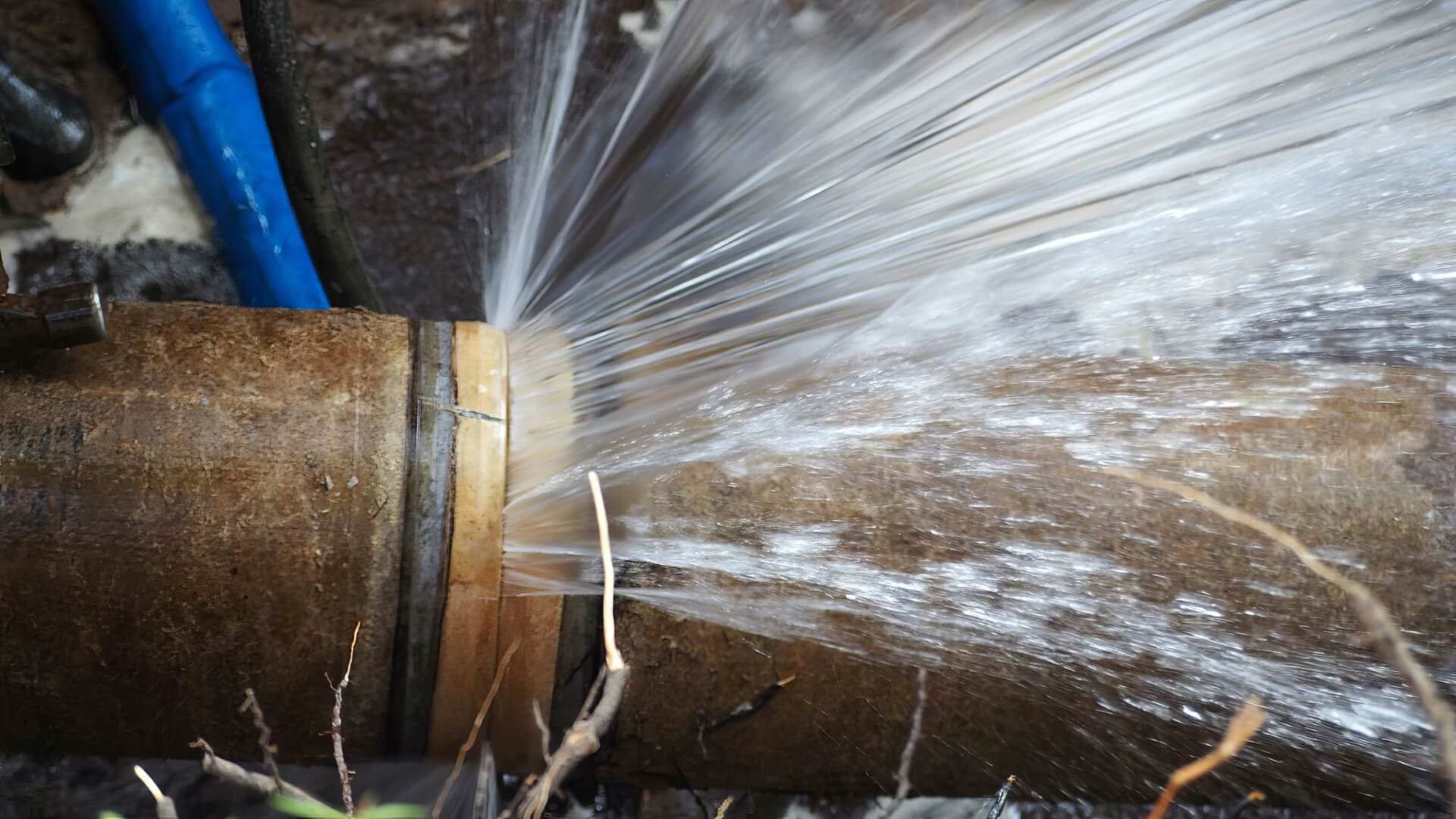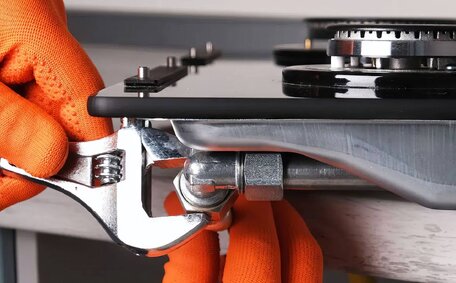Introduction to natural gas and its household uses
Natural gas is employed in numerous Chatswood homes for cooking, heating, and hot water needs, highlighting its key role in domestic energy use and the broader conversation on climate change. Predominantly consisting of methane, natural gas is an efficient and cost-effective energy source, with benefits realized through diligent management and maintenance.
Given natural gas powers many household appliances, Sydney homeowners must understand the importance of proper management in its various uses. Guiding you through how we expertly manage the installation as professional gas fitters servicing Chatswood, upkeep, and servicing of gas appliances, notably considering factors like air quality, guarantees a secure and reliable use of natural gas.
The chemical composition and properties of natural gas
To maintain safety and prevent leaks, it’s vital to know that natural gas is primarily methane, constituting 90-95% of its composition. The remaining composition of natural gas, including elements like ethane, propane, and butane, could potentially elevate the risk of natural gas leaks.
To keep your safety assured, note that natural gas releases an inherent odourless and colourless substance. To ensure you can detect natural gas in case of a leak, a compound known as Mercaptan is added to natural gas by the gas distribution company, bestowing upon natural gas a pungent 'rotten egg’ odour, alerting occupants to potential leaks.
If a natural gas leak transpires, even though it is lighter than air, it can disperse quicker than elements heavier than air, thereby amping up the safety in such scenarios. This practice diminishes the possibilities in which undetected gas leaks can spark ignition and compromise indoor air quality and lead to adverse outcomes like natural gas poisoning.
Similar to oil gas, natural gas is mainly methane; however, incorrect use resulting in unburned gas can cause incomplete combustion and associated complications. Unattended leaks present dangers such as oxygen depletion, risk of explosion from sparks, and harmful long-term health effects if inhaled.
Health and safety hazards associated with gas leaks
To preserve appliance integrity and ensure natural gas safe usage within your house, regularly scrutinise your devices, making certain their functionality doesn’t pose health and safety hazards. The main risks include:
- Fire and explosion - Natural gas can ignite when exposed to an open flame or spark, potentially leading to blasts. This risk is exacerbated when gas leaks occur in confined household areas.
- Oxygen depletion - Excessive natural gas can deplete oxygen levels and increase carbon monoxide in homes, jeopardizing safety.
- Toxic gas exposure - Natural gas contains trace amounts of toxic compounds like benzene that get released upon leaking. One significant study showed that homes could contain hazardous air pollutants, posing a risk of gas poisoning in some instances.
- Pollutants - Leaks can also emit harmful indoor air pollutants like carbon dioxide, leading to nitrogen dioxide exposure, and particulate matter.
Recognizing even minor gas leaks is essential, although they may not be detectable by the added 'rotten egg’ smell. However, experiencing symptoms natural gas related, such as headaches, dizziness, fatigue, and flu-like effects can signal inadvertent exposure.
Effective ventilation is crucial for detecting and promptly dispersing gas leaks to prevent health issues, and it’s important to follow safe practices, such as 'dial before dig’ when using natural gas outdoors. Annual inspections by licensed gasfitters, regular servicing of gas appliances, and installing detectors can alert households to gas issues early on.
If you’re worried about a potential gas leak in your home and can still smell gas despite initial actions, promptly evacuate the area and alert Emergency Services by dialling 000.
Signs of a gas leak and what to do
There are several potential signs of a gas leak to watch out for in your Chatswood home:
- A pronounced scent akin to rotten eggs
- Hissing, whistling or roaring sounds coming from gas appliances or pipes
- Dirt blowing from a hole in the ground
- Dead or dying vegetation in otherwise lush areas above buried gas lines
- An abnormal flame projecting from gas appliances instead of a steady, controlled burn
- Unusually high gas bills from gas equipment frequently turning on/off
If you notice signs of a gas leak, immediate action is crucial to ensure a safe environment:
- Clear the building and turn off your gas lines, ensuring doors and windows are open as you exit to aid in ventilation
- Avoid turning any electrical switches or appliances on/off which could produce sparks
- Call 000 from outside the building to request emergency assistance
- Contact your utility company to shut off your gas from the meter or main valve
- Do not re-enter the building until emergency crews give the all clear that it’s safe to return
For regional assistance and authoritative advice from a professional gas fitter on the dangers natural gas may pose, certified by gas safety associations, Chatswood residents can get in touch with our licensed gas plumbers on 1300 349 338 or contact Emergency Services on 000. Professional inspection is essential to identify and remedy leaks before they pose significant public health risks such as explosion, oxygen shortage, or toxic gas exposure to families.
Preventing hazardous gas exposure through proper ventilation
Proper air flow strategies, showcased in our video, are crucial to ensure your home’s safety against dangerous gas build-up and to enhance the air quality around your natural gas appliances. Here are some tips to mitigate potential health effects:
- Always turn on exhaust fans above gas stoves when cooking
- Make sure to open windows when using gas appliances to allow fresh air circulation
- Have HVAC contractors install adequate ventilation systems for spaces with gas equipment
- Inspect flexible gas appliance connectors annually for damage/wear
- Position gas appliances away from sleeping areas and high-traffic spaces
- Consider installing carbon monoxide detectors as an extra precaution
By boosting ventilation near gas appliances, you can markedly reduce your risk factors such as oxygen displacement, accumulation of airborne toxins, and instances of gas ignition in snug home areas.
For advice on upgrading ventilation or servicing gas appliances, endorsed by the gas association, Chatswood residential and your home business customers can call our licenced plumbers on 1300 349 338.
Regular inspection and maintenance of gas appliances
Regular maintenance and inspection of gas appliances are essential to prevent leaks and malfunctions.
Consult your manufacturer’s guide for the servicing schedule of your gas water heater, stove, or furnace. If unsure, learn how to use gas appliances safely by following a good rule of thumb about arranging professional servicing:
- Annually for gas ovens and stoves
- Every 2 years for most gas hot water systems
- Every 3-5 years for gas heaters including ducted gas heating systems
Qualified gas fitters’ maintenance checks include several key aspects:
- Testing pipes, valves and couplings for leaks
- Examining burners, testing pilot lights, and checking exhaust flues for blockages
- Checking safety controls and ensuring the shutoff valve is operational
- Tuning appliance combustion efficiency if needed
Defective or poorly maintained gas appliances account for over half of all reported annual carbon monoxide poisoning cases in the region. To safeguard your well-being, book an inspection with our licensed gas experts at 1300 349 338 if you encounter any problems with your gas appliances.
Installing carbon monoxide detectors
Carbon monoxide detectors are crucial in identifying carbon monoxide, a harmful gas emitted from improperly burned gas appliances.
For optimal safety in areas where gas is combusted, do use carbon monoxide alarms and install them in hallways or common areas outside bedrooms in homes with gas appliances. They should only be either plug-in or hardwired, installed at eye level, and kept away from excess humidity and chemicals.
Expert advice from scientist teams, including those at the Chan School of Public Health, recommends testing detectors monthly and replacing worn batteries yearly, to ensure they have not turned off and are operating correctly. Units should be replaced every 5-7 years per manufacturer specifications as sensors lose sensitivity over time.
If you need assistance with carbon monoxide detector placement, contact our licensed Chatswood plumbers at 1300 349 338 for a safety inspection and personalized installation advice.
Safety tips for using natural gas in homes
Key natural gas safety tips, endorsed by the School Public Health authorities, are shared for Chatswood residents utilising natural gas:
- Routinely check for leaks - if you smell gas or detect rotten egg odours, listen for hissing, and monitor vegetation near gas lines, knowing how to turn off the gas is necessary.
- Familiarize yourself with the location of your gas shut-off valve should you need to quickly halt the supply.
- Never attempt DIY repairs on home gas appliances or pipelines - always hire qualified gas fitters
- Follow the manufacturer’s manual for proper use and maintenance of gas equipment
- Ensure adequate ventilation when operating gas appliances using extraction fans or opening windows
- Consider installing carbon monoxide detectors for extra precaution
- Never store flammable products like petrol or paint near gas appliances or pipelines
Vigilance in using natural gas safely is crucial for protecting your home from fire risks, explosions, and harmful exposures. For expert maintenance of your home’s gas systems, reach out to our licensed team at 1300 349 338.
What to do in case of a gas leak or suspected exposure
If you suspect a gas leak your home or potential gas exposure in your Chatswood residence or enterprise, heed these imperative steps:
- Evacuate everyone from the building immediately and leave doors windows open to ventilate on your way out
- Avoid turning any electrical switches or appliances on/off that could produce sparks and ignite leaking gas
- Call 000 once outside to request emergency assistance, informing operators about the potential gas leak
- Contact your gas utility provider to switch off your gas meter supply at the meter located outside
- Contact our emergency plumbers at 1300 349 338 to report the incident and schedule an urgent inspection.
- Do not re-enter the premises until emergency crews confirm it’s safe, and all gas appliances have been thoroughly checked by professionals
Should anyone show symptoms from a gas leak, and you’ve turned off the gas supply, it’s crucial to get immediate medical assistance by calling 000 or heading to the nearest emergency room.
As Chatswood’s trusted local plumbing experts, we are fully equipped to handle gas leak emergencies 24/7. For urgent assistance assessing and stopping leaks safely, call our licenced team on 1300 349 338.
Considering alternatives to natural gas
While natural gas stands as a critical fuel source, certain Chatswood households might consider exploring alternatives for more eco-friendly or lower-risk home energy remedies.
Opting for all-electric alternatives that employ efficient heat pump technology can significantly diminish your reliance on natural gas and diversify your energy sources within the home. Solar electricity and hot water systems also offer clean energy alternatives for sustainable homes aiming to shrink their carbon footprint.
Upgrading old appliances to newer, safety-enhanced models can also reduce risks associated with using natural gas.
Gas lpg, as a portable bottled fuel option, offers a solid choice, and please select your fuel type with due care based on availability and needs in locations where piped natural gas isn’t accessible. However, storage and handling need proper safety precautions against fire risks or exposure.
For those in Chatswood interested in moving away from natural gas, our licensed team at 1300 349 338 can provide more information. We’re glad to elaborate on more sustainable, lower-risk home energy solutions bespoke to your lifestyle.






